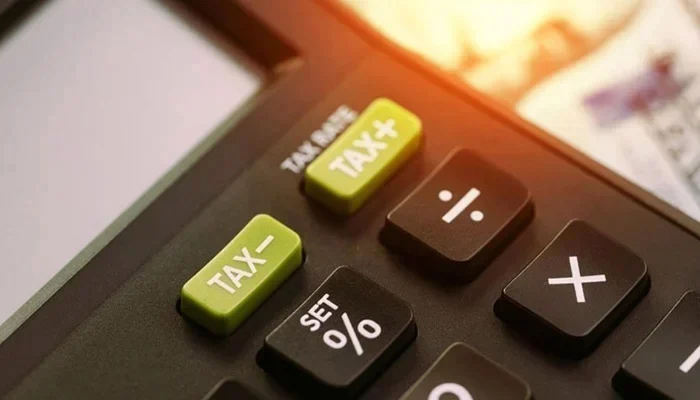Unseen taxation
LAHORE: No government has ever been able to bring traders under the proper tax net. It is the only contentious issue between IMF staff and the Pakistani government, which wants proper documentation to increase the tax base.
The non-documented economy is a problem; as against the 17 percent sales tax, corporate tax, and sales tax paid by the documented sector, the informal sector pays no taxes. This way, we increase the burden of taxes on the compliant sectors without making efforts to bring the informal sector into the tax net. The government should reduce dependence on indirect taxes, which are implicit taxes on the poor.
We see shopkeepers in smaller markets being bullied by the authorities. They meekly accept their exploitation, but when it comes to the documentation of the economy, they unite and observe a shutdown strike, under which all shops in the country are closed, giving markets a deserted look.
Those who bully these traders vanish from the scene because non-documentation facilitates authorities in rent-seeking. Our political elite is afraid of the shutter power of the 2.2 million shopkeepers and, instead of documenting the trade, are content to receive whatever tax returns they file.
The traders do not have the capacity, capability, or financial resources to organize mass-scale meetings and gatherings where the best meals are served. It seems someone else financed their movement because traders are not the only beneficiaries of non-documentation.
Smuggling, under-invoicing, and the wrong declaration of goods have become the norm in our trading system. Since the customs officers and other agencies have no fear of accountability, they find it convenient and lucrative to cooperate in these unlawful activities.
Over the years, smugglers and all unethical mass-scale producers and importers have gained influence in society.
Reforms that bring transparency are resisted tooth and nail by these influential segments of society that are beneficiaries of a system that assists them in evading government levies.
This is the reason that when officials raid shops to confiscate smuggled or non-tax-paid items, there is an uproar in the market. The shopkeepers get clandestine support from these elements to organize strikes, general meetings, and press conferences.
The larger beneficiaries of non-documentation are smugglers, under-filers, and importers that bring goods through massive under-invoicing. They market all their products through 2.2 million traders spread all over the country.
These elements alone are depriving the state of about one trillion rupees per year. The shopkeeper pays them cash without leaving any money trail. Moreover, since the smuggled or under-invoiced or under-filed goods are retailed incorporating the taxes and government levies, the consumers are unduly cheated.
Documenting the economy is not rocket science. There is a system used the world over to collect taxes and check its abuse. Advances in information technology have made it simple. You just have to place a globally recognized system that would bring transparency and efficiency.
There should be no direct contact between the tax collector and the payer. The system should capture all economic transactions, making the Computerized National Identity Card the medium through which transactions could be made. But the traders stubbornly refuse to enter the CNIC of the buyers, and the process is stalled.
-
 Extreme Cold Warning Issued As Blizzard Hits Southern Ontario Including Toronto
Extreme Cold Warning Issued As Blizzard Hits Southern Ontario Including Toronto -
 Lana Del Rey Announces New Single Co-written With Husband Jeremy Dufrene
Lana Del Rey Announces New Single Co-written With Husband Jeremy Dufrene -
 Ukraine-Russia Talks Heat Up As Zelenskyy Warns Of US Pressure Before Elections
Ukraine-Russia Talks Heat Up As Zelenskyy Warns Of US Pressure Before Elections -
 Lil Nas X Spotted Buying Used Refrigerator After Backlash Over Nude Public Meltdown
Lil Nas X Spotted Buying Used Refrigerator After Backlash Over Nude Public Meltdown -
 Caleb McLaughlin Shares His Resume For This Major Role
Caleb McLaughlin Shares His Resume For This Major Role -
 King Charles Carries With ‘dignity’ As Andrew Lets Down
King Charles Carries With ‘dignity’ As Andrew Lets Down -
 Brooklyn Beckham Covers Up More Tattoos Linked To His Family Amid Rift
Brooklyn Beckham Covers Up More Tattoos Linked To His Family Amid Rift -
 Shamed Andrew Agreed To ‘go Quietly’ If King Protects Daughters
Shamed Andrew Agreed To ‘go Quietly’ If King Protects Daughters -
 Candace Cameron Bure Says She’s Supporting Lori Loughlin After Separation From Mossimo Giannulli
Candace Cameron Bure Says She’s Supporting Lori Loughlin After Separation From Mossimo Giannulli -
 Princess Beatrice, Eugenie Are ‘not Innocent’ In Epstein Drama
Princess Beatrice, Eugenie Are ‘not Innocent’ In Epstein Drama -
 Reese Witherspoon Goes 'boss' Mode On 'Legally Blonde' Prequel
Reese Witherspoon Goes 'boss' Mode On 'Legally Blonde' Prequel -
 Chris Hemsworth And Elsa Pataky Open Up About Raising Their Three Children In Australia
Chris Hemsworth And Elsa Pataky Open Up About Raising Their Three Children In Australia -
 Record Set Straight On King Charles’ Reason For Financially Supporting Andrew And Not Harry
Record Set Straight On King Charles’ Reason For Financially Supporting Andrew And Not Harry -
 Michael Douglas Breaks Silence On Jack Nicholson's Constant Teasing
Michael Douglas Breaks Silence On Jack Nicholson's Constant Teasing -
 How Prince Edward Was ‘bullied’ By Brother Andrew Mountbatten Windsor
How Prince Edward Was ‘bullied’ By Brother Andrew Mountbatten Windsor -
 'Kryptonite' Singer Brad Arnold Loses Battle With Cancer
'Kryptonite' Singer Brad Arnold Loses Battle With Cancer




